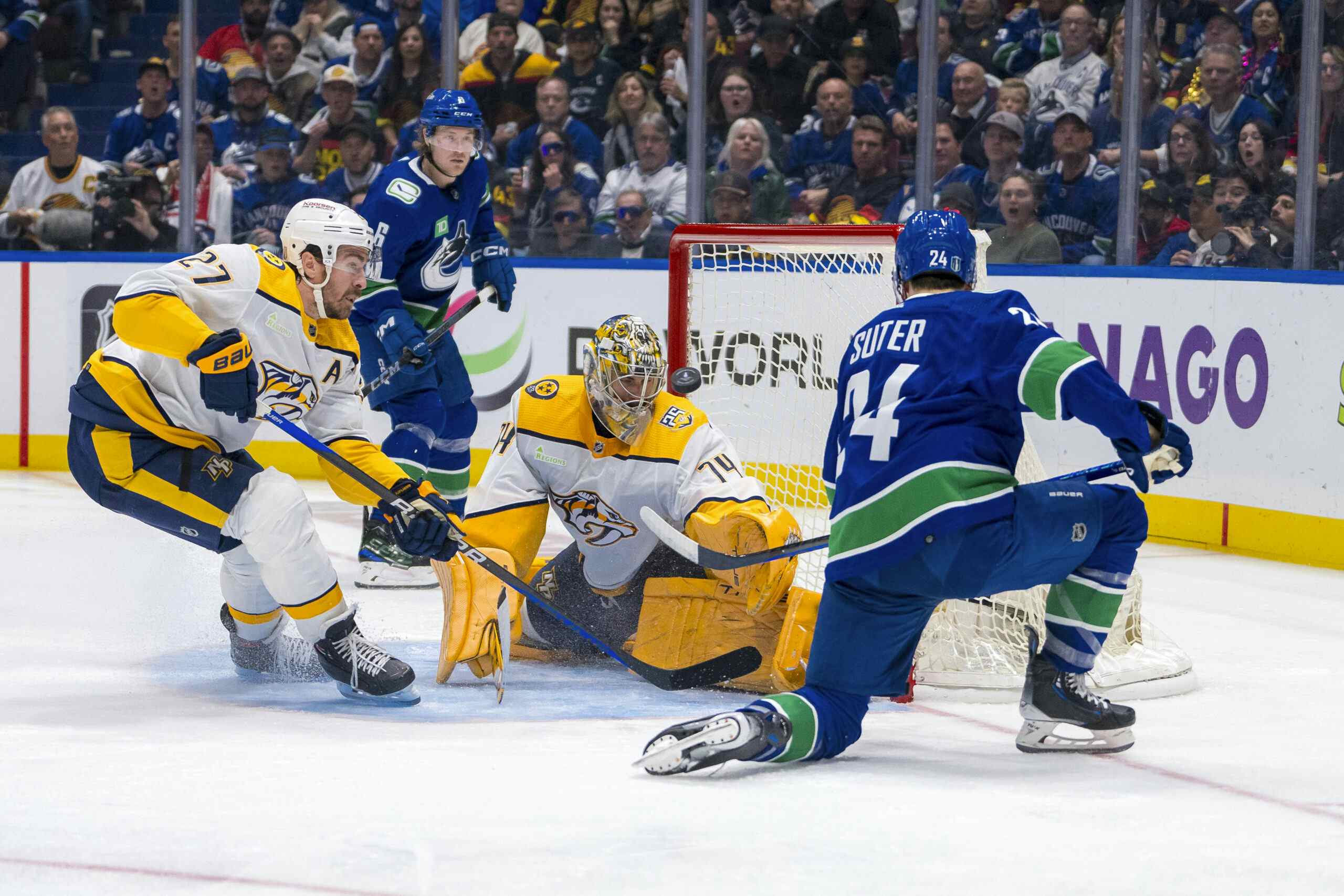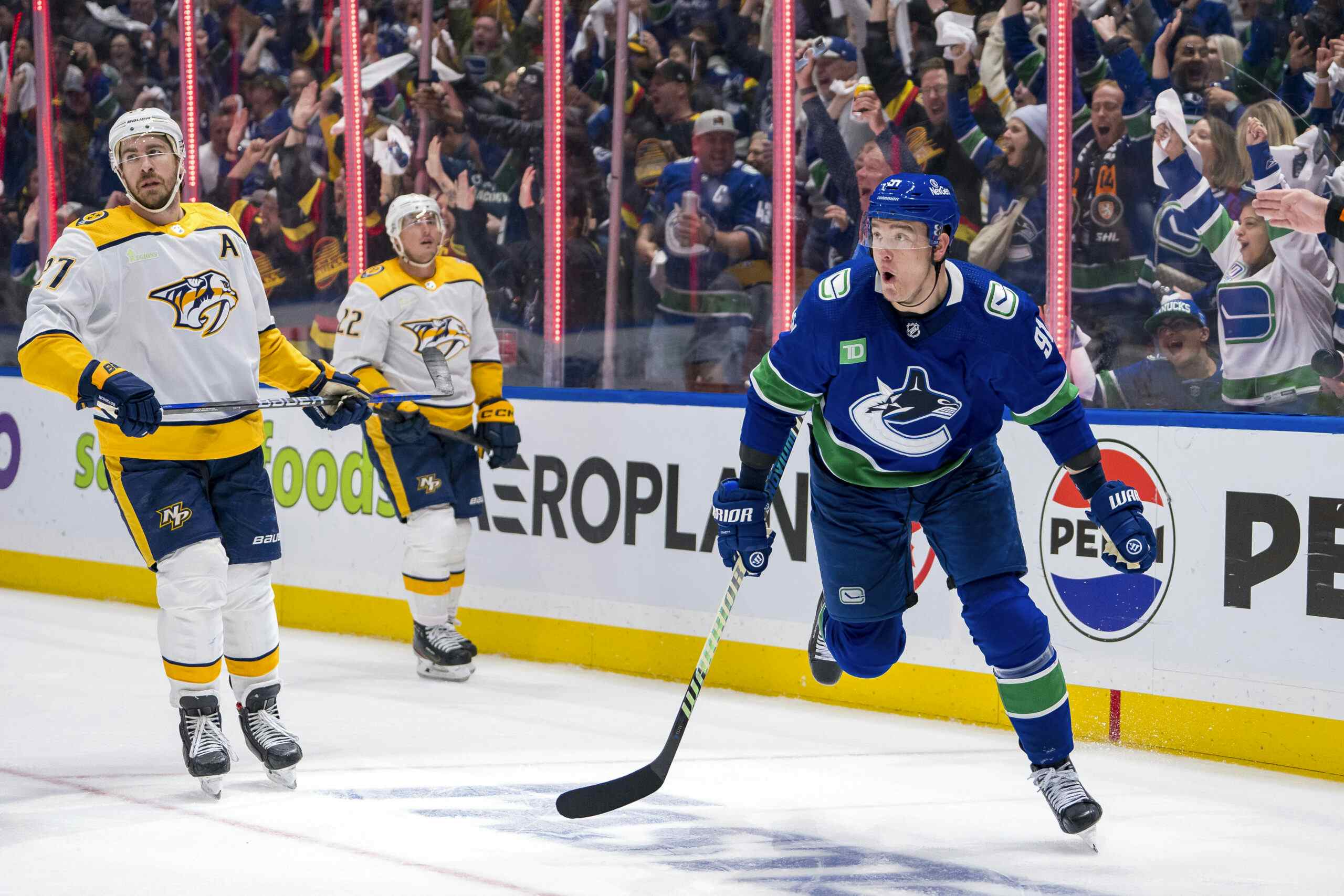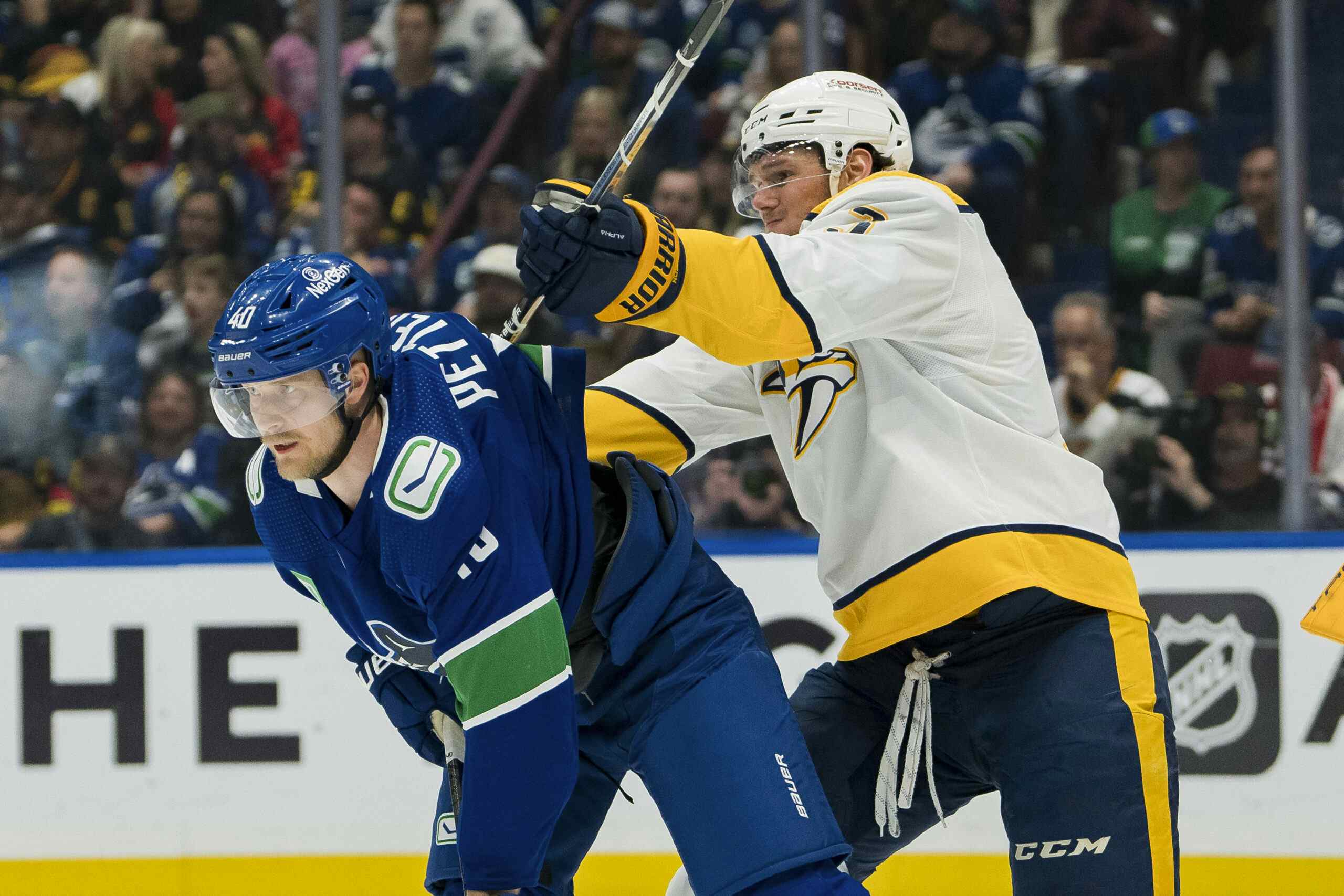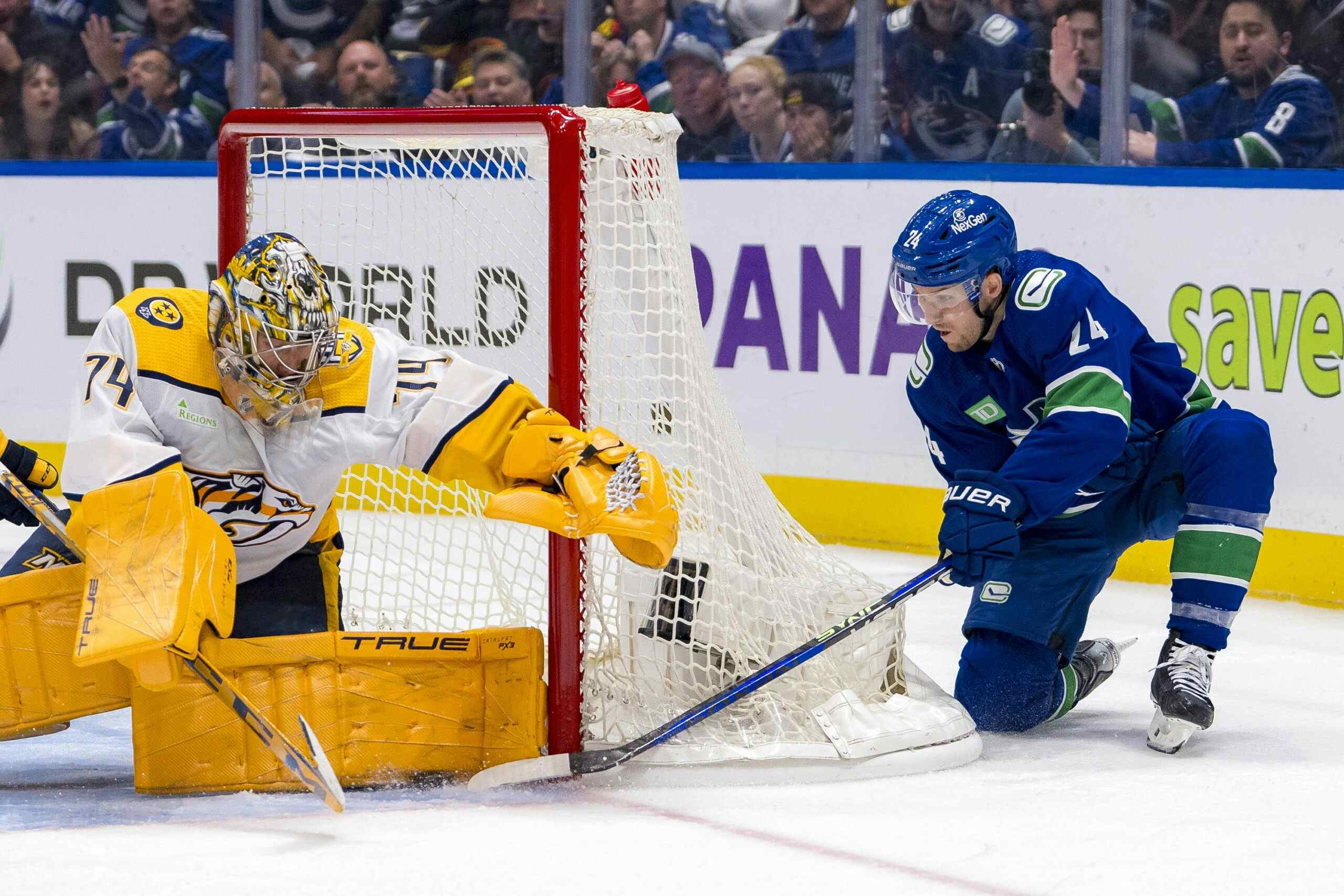Comparing the 2019-20 Canucks to the 2011-12 Los Angeles Kings
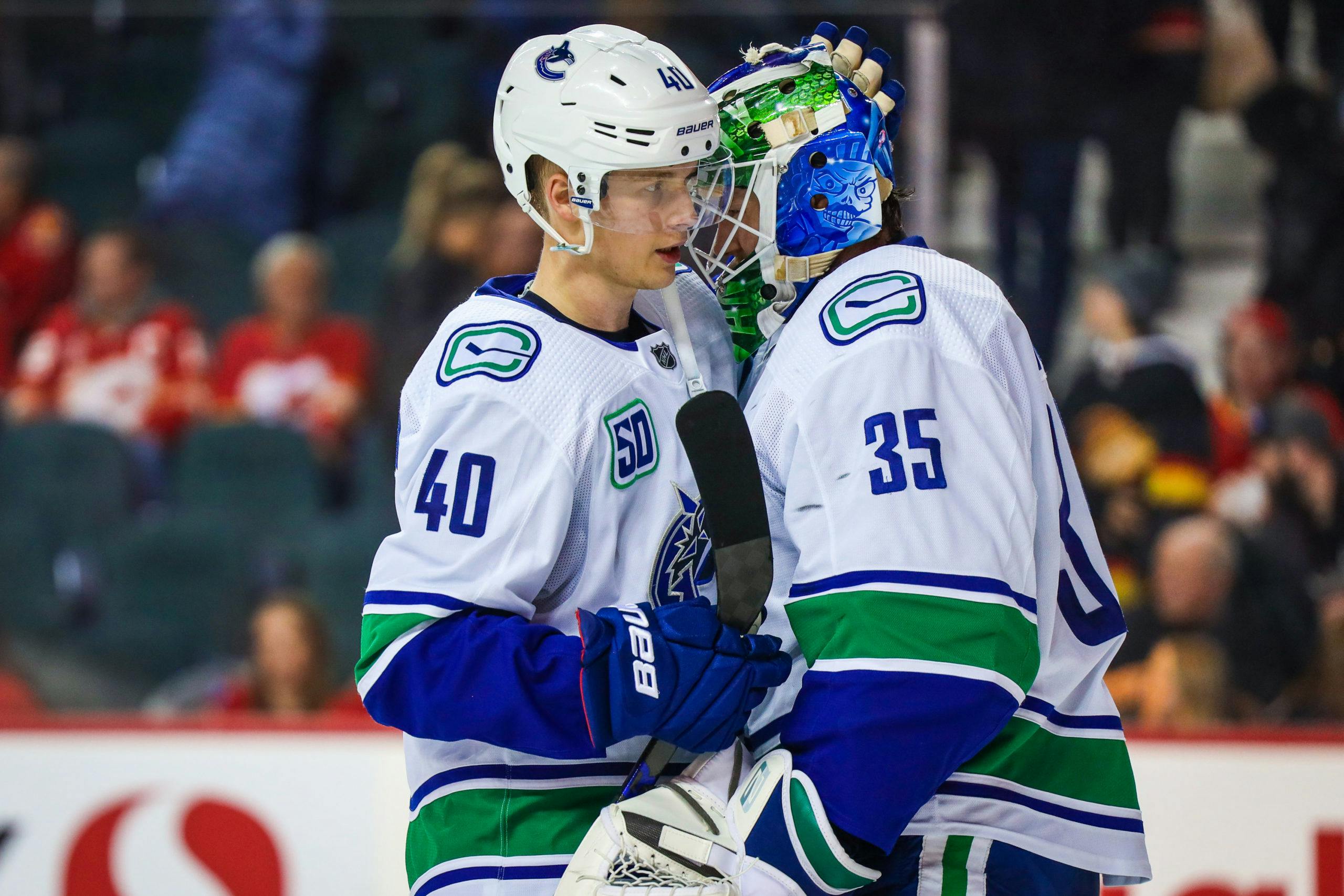
By Always90four
4 years agoNot every powerhouse looks like a powerhouse at first glance. While the Canucks have struggled as of late, they’re still in a similar position to the one a fairly recent Stanley Cup champion found themselves in just before their historic run: The 2012 Los Angeles Kings.
Just how good were the 2012 Los Angeles Kings? Not very good at all, actually. They closed out their season losing two straight overtime games and just snuck into the 8th seed to face the President’s Trophy-winning Vancouver Canucks. The Kings were sleeping giants but the traditional stats weren’t all in their favour. LA would eventually go on arguably the greatest run in Stanley Cup history and win the team’s first-ever championship.
So how do this year’s Canucks compare to that team? A lot better but there’s one area that seems to be the difference-maker. The Kings didn’t turn it on until the playoffs so what will it take for the Canucks to mimic that run?
Let’s take a look at Los Angeles first.
The 2012 Kings weren’t world-beaters in the standings. They finished the season 40-27-15. Their 95 points were good enough to take the 8th spot and at the time no one expected them to be the juggernaut that they would become. The team never managed to score more than 5 goals in a game, which they did nine times. They were shutout a whopping 10 times (one of those was actually a 1-0 shootout win), but also put up 11 shutouts of their own.
Los Angeles was blown out once in an 8-2 drubbing from Detroit just before the New Year. Their power play was dormant and converted a total of 17%, which is where the Canucks were just a season ago.
Unless you were a heavy CanucksArmy follower and oozed fancy stats back in the day (is 2012 back in the day?) you may not have noticed that the Kings had an extremely good 54.74 CF%, which was second in the league. Their xGF% was 52.57, sixth-best in the NHL. There wasn’t one player upfront that dominated, in fact, Anze Kopitar led the team with 76 points.
The Kings had some injury issues as well, compiled with trying to find the right fit on the back end. Los Angeles had a total of 28 defensive pairing combinations and eight pairings with over 100+ minutes together.
The top pairing of Matt Greene and Alex Martinez had a 61.58 CF% and the pair of Willie Mitchell and Drew Doughty combined for a 55.81 rating. Talk about a solid top-four!
Drew Doughty was in his absolute prime during that time and it was a bit of a surprise that Willie Mitchell had 5 PPG, he wasn’t exactly known for scoring any goals whatsoever. The back end was as reliable as any of the best teams had in a Cup run and it allowed the forwards to press a bit harder because of that.
Their possession numbers were strong but it was the play of Jonathan Quick that made the ultimate difference.
Quick was the constant factor all season in 2012. He recorded an impressive 10 shutouts and finished with a 1.95 GAA and a .929 SV%, his best statistical year ever. He kept it going in the playoffs with a 16-4 record, 3 shutouts, and an insane .946 SV%. Stingy defense and timely goals made it easier for Quick to shine but it can’t be knocked that he was a wall.
The Kings also had closers, guys that knew how to win big games including Mr. Game 7 Justin Williams and along with Alec Martinez, they ran the table. Combine that with Dustin Brown, Trevor Lewis and a young Tyler Toffoli and you have a team that blew the doors off the rest of the league in the spring of 2012.
The 2012 Kings were a mixed bag but put it all together behind a red-hot goaltender in the playoffs and possession numbers that favoured them all the way to the Cup.
So are the Canucks in a position to compete with that team?
For starters, Vancouver is six wins away from equalling the Kings win total from that season. The Canucks are on pace for 95 points (rounded up from 94.81). Goal scoring has been a strength for a good portion of this season, something that didn’t look sustainable knowing the team that took to the ice last year.
The Canucks have scored five or more goals 20 times this season, six or more 9 times, and seven or more 4 times. J.T. Miller has been a big reason for this combined with Elias Pettersson’s continued dominance and the secondary scoring push from Bo Horvat, Tanner Pearson, and Jake Virtanen.
It hasn’t been a cakewalk in net this season, even with Jacob Markstrom putting up big performance after big performance. Vancouver has a combined two shutouts this year while they have been shutout four times themselves. They’ve only been blown out once, which everyone remembers was against Tampa.
Collapsing after having leads is a different story for a different time.
As a team, the Canucks haven’t been solid in the first, giving up the first goal on numerous occasions. They have 65 goals in the first period this season, however, going into Sunday’s game against the Blue Jackets which is three goals back of the first-place Oilers at 68.
Markstrom’s personal numbers were starting to get some Vezina talk but his meniscus injury all but ended that idea. He has kept the Canucks in a ton of games they might have otherwise dropped so stolen points have been his specialty.
At the beginning of the season, the Canucks had a CF% that clearly wasn’t sustainable but they were controlling play. Here’s an example of what things USED to look like:
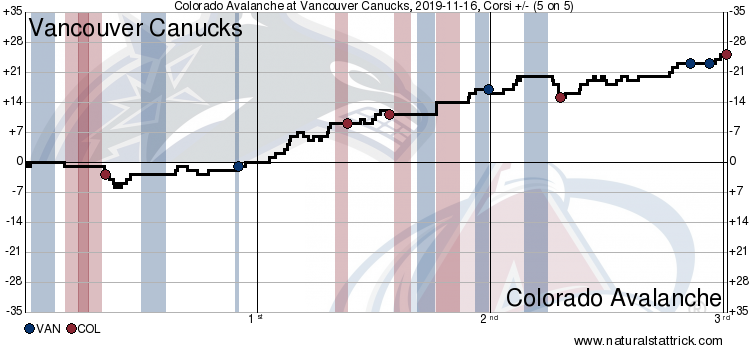
It felt like it wasn’t going to last because anyone that’s watched the Canucks knows they aren’t in a position to control play quite yet but the goals masked the truth. It turns out we were correct and the Canucks had the puck so much that they played themselves into trouble. Have you ever heard of talking yourself out of a sale?
The Canucks did this on the ice.
As of now, they sit 23rd in the league at a CF% of 48.46 while their xGF% is 48.54. Not looking good for the Canucks chances of being a titan this spring, is it?
What about the injuries? Every contender has to go through adversity, right? The Canucks have seen Markstrom leave the net a few times this season and Thatcher Demko didn’t skip a beat. Elias Pettersson has been hurt, Micheal Ferland has missed the lion’s share of the season and is now potentially done forever, Tyler Motte has been hurt, Alex Edler has been hurt, Jay Beagle, the ever-injured Brock Boeser, and finally Josh Leivo.
If they were to get Boeser and Leivo back for a potential playoff run, they could be in a good position to make some noise.
On defense, the Canucks have also seen a number of pairings this season, 23 to be exact, and the top pairing so far this season is Quinn Hughes and Tyler Myers with a combined CF% of 56.39. Tyler Myers and Alex Edler are the only other 50+ rated pair. Going over the defensive groups, Hughes and Chris Tanev are similar pairs to Willie Mitchell and Drew Doughty as far as how they present themselves on the ice.
Upfront, Vancouver should have four 60 point players by season’s end. It’s a contradicting team, that’s for sure. All the actual stats suggest the Canucks are just as dangerous as any team to make it but the underlying numbers aren’t very pretty.
As the Kings had their run go through Jonathan Quick, so will the Canucks through Jacob Markstrom. The recent string of games with Demko has shown the Canucks will continue to allow shots at a rate that is almost the highest in the league and if they aren’t getting key stops when they’re in trouble, the wins will dry up pretty quick.
Vancouver does have a team on paper that can potentially contend but they’ll need Jacob Markstrom to come back and be elite and they’ll have to discipline themselves to lessen the opportunity for them to get vastly outshot. The power play will need to be reworked too.
And some luck, they’ll need a lot of that, too.
Recent articles from Always90four

